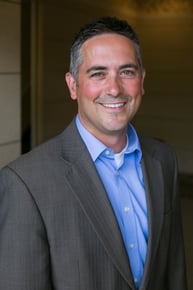Anxiety tops the list of mental illnesses, affecting approximately 40 million adults in the U.S. (18% of the U.S. population). Sometimes being number one isn’t worth celebrating. Instead, it is worth exploring, understanding, and finding ways to open communication with those suffering. Anxiety is often associated with other disorders such as depression, but it is not to be mistaken with other disorders. Anxiety is an excessive feeling of fear or worry. Depression is excessive feelings of hopelessness and worthlessness. Most of you, if not all of you, reading this either know about anxiety, have dealt with anxiety personally, or know someone who is battling anxiety. The point of this article is to make it top of mind in your work and personal life, to identify ways you can help manage it, and to provide you with resources.
In a nutshell, anxiety can last a few seconds or last a lifetime. Types of anxiety include:
- Panic Disorder: Sudden, intense fear leading to a panic attack.
- General Anxiety Disorder: Feeling excessive worry without reason.
- Social Anxiety Disorder: Obsessively worrying about others judging you, being embarrassed.
- Separation Anxiety: Fear when someone close to you leaves, worrying about something happening to them or you.
- Agoraphobia: Intense fear of being stuck in a place without escape, e.g., airplane, elevator, banquet, crowded venues, etc.
- Medication-induced Anxiety Disorder: Use of or withdrawal of drugs, alcohol, or medications.
Common symptoms of anxiety are panic, fear, sleep problems, cold, sweaty, numb hands or feet, shortness of breath, and/or inability to concentrate. More often than not, your primary doctor will not conduct a physical or medical test that proves you have anxiety. They will hopefully direct you to a psychiatrist or psychologist for further analysis and treatment. Open discussions with a professional therapist will likely avoid being given the wrong diagnosis and wrong medication. In fact, medication might be avoided altogether through awareness and management techniques provided by the therapist.
It is important to identify ways you can help others or yourself manage anxiety. Just like any mental health awareness, establish open and regular communication with everyone in your workspace. Make your staff aware of the specific medical coverage for anxiety, establish an EAP (Employee Assistance Program) to access a confidential therapist, or set up support groups within your company. This needs to be a repeatable occurrence, not just a once-a-year open enrollment discussion.
In addition to the above, some helpful advice is knowing what to say and how to say it. For someone experiencing anxiety, learning about anxiety disorders is an important step in managing them. Simple suggestions might include learning techniques to relax, getting better sleep, exercising, or reducing alcohol or caffeine intake. Anxiety can be managed through personal journals, sticking with suggested treatment plans, or discussing openly with friends or support groups. You might not be a therapist, but knowing just a little bit will help more than you can imagine.
Resources:

COMMENTS